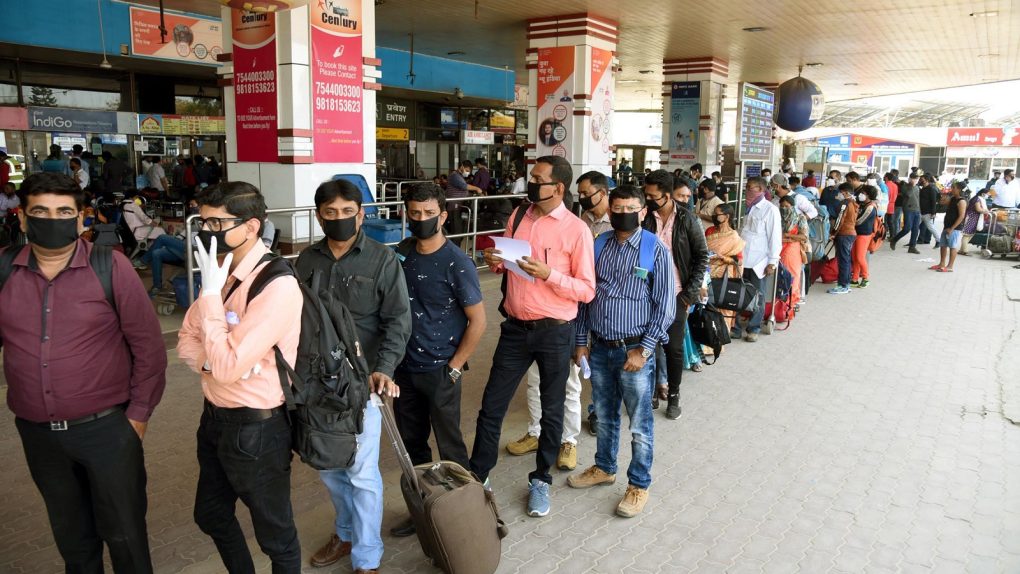- Researchers from the UK and US developed artificial intelligence that can diagnose COVID-19 by associating a set of parameters and self-reported symptoms with the help of a mobile app.
- The researchers found four symptoms indicative of a likely infection with the novel coronavirus, including loss of smell or taste, severe or persistent cough, fatigue, and skipping meals.
- Such a tool could supplement the lack of COVID-19 testing in certain communities looking to ease restrictions, but the method might have limitations.
- Visit BGR’s homepage for more stories.
Aggressive testing and contact tracing have helped many countries contain their novel coronavirus outbreaks over the past few months, proving that the virus can be fought. Countries that failed to speed up testing and tracing ended up with massive caseloads and an increasing number of victims.
The virus isn’t going to disappear until some degree of herd immunity is acquired. That happens either by surviving COVID-19 or getting vaccinated. Additional waves are expected in the near future, which is why opening up the economy isn’t an easy task for any government. Several measures will have to be implemented to ensure the fast discovery of new cases so that potential outbreaks can be stopped early on. That’s where artificial intelligence (AI) might help, as a new study says computer models can interpret self-reported symptoms and predict the likelihood of a person having COVID-19.
Researchers from Britain and the US published a new study in Nature magazine to explain their findings. They used data from a mobile app called COVID Symptom Study, which was downloaded more than three million times in just six weeks. The respondents detailed their symptoms with the help of the app, and the results of COVID-19 tests that confirmed the infection.
The researchers then built an AI model that can diagnose COVID-19 by looking at symptoms alone, which has been a daunting task for physicians. The novel coronavirus comes with symptoms that can mimic the flu or a common cold. There are plenty of specific symptoms, including the loss of smell and taste, skin lesions, and neurological and cardiac signs. The problem is that not all patients get the same set of symptoms, which makes diagnosing COVID-19 without a test extremely difficult.
Researchers used data from more than 2.5 million people in the US and UK who had been logging their health status regularly inside the app. Of those, 18,374 reported having had a COVID-19 test, and 7,179 tested positive. Using the data, the researchers created a model that predicted with nearly 80% accuracy whether the symptoms of a person were indicative of a coronavirus infection or not.
The AI takes into account the age and sex of the user as well as four key symptoms to deliver a response. These symptoms are loss of smell or taste, severe or persistent cough, fatigue, and skipping meals. “Applying this model to the entire group of over 800,000 app users experiencing symptoms predicted that just under a fifth of those who were unwell (17.42%) were likely to have COVID-19 at that time,” the team explained.
The study explains that authorities should not focus only on fever and cough when looking at protocols for opening up. Anosmia, or the loss of taste and smell, is the most relevant symptom for infections. Two-thirds of those reporting it were later confirmed to have contracted the novel coronavirus. The team advises governments and health authorities to include anosmia in their COVID-19 screening. That’s something the CDC did a few weeks in the US, following a similar study that observed the incidence of the symptom in COVID-19 patients.
The researchers think that using AI might help complement COVID-19 testing, especially in communities where there aren’t enough tests. While having an AI tool to predict COVID-19 cases might come in handy, it’s easier said than done. For this AI to work, everyone needs to install the mobile app on their phones, and then they should be very rigorous when it comes to reporting symptoms. Second, the app will never catch asymptomatic patients who are still contagious. Contact tracing would be required to complement the use of such an AI app to find those who aren’t showing any symptoms but can still spread the disease. Third, the AI model still can’t detect some 20% of cases.
The researchers said that two clinical studies will start shortly in the US and UK, but it’s unclear what they’ll entail. This isn’t the first time that researchers have used AI for COVID-19 studies. A few weeks ago, scientists analyzed patient data, training AI to predict which patients might develop a more severe form of the illness.







